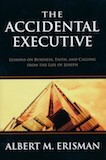What If Your Boss Is Hostile to Your Faith?
In the first year of Cyrus king of Persia, in order to fulfill the word of the Lord spoken by Jeremiah, the Lord moved the heart of Cyrus king of Persia to make a proclamation throughout his realm and also to put it in writing:
"This is what Cyrus king of Persia says:
'The Lord, the God of heaven, has given me all the kingdoms of the earth and he has appointed me to build a temple for him at Jerusalem in Judah.' "
Ezra 1:
Most Christians don’t find their workplaces very supportive of their faith. Generally, there is limited scope for explicitly Christian witness and action. Moreover, workers may feel pressure to violate the ethical requirements of biblical standards, either explicitly or implicitly. In a pluralistic society, some such limits may be appropriate, but they can make the workplace feel like alien territory to Christians.
The book of Ezra depicts what it is like for God’s people to work in unwelcoming workplaces in jobs ranging from construction to politics, often in the midst of environments openly hostile to God’s values and plans. Yet along the way, they receive surprising help from nonbelievers in the highest positions of civic power. God’s power seems to crop up for his people’s good in surprising places, yet they face extremely challenging situations and decisions, upon which they don’t always agree.
Ezra had to ponder whether to trust an unbelieving ruler to protect the Jewish people as they returned to Jerusalem and began rebuilding the temple. He had to find financial support within the corrupt economic system of the Persian Empire, yet be true to God’s laws about economic integrity.
Our titles and institutions have changed since the days of Ezra, but in many ways our workplaces today have much in common, for better or worse, with the context in which Ezra labored. The real-life situations, challenges, and choices found in this biblical book help us develop a theology of work that matters in how we live each day.
QUESTIONS FOR FURTHER REFLECTION: Would you describe your workplace as supportive of your faith, hostile to your faith, or indifferent? Is the leader of your organization a believer or an unbeliever? In your workplace environment and relationships, where have you experienced God's power for good?
PRAYER: Gracious God, we thank you for working in the world in surprising ways—through believers and unbelievers, through explicitly Christian organizations and through organizations that may even be hostile to our faith. Thank you for the story of Ezra, and help us find hope in it when the world around us seems hostile to your people. May we be patient and humble in our work. May we always be true to your commandments to love you with our heart, mind, and soul, and to love others as we love ourselves.
God, strengthen your people who work in settings that do not support their faith. Soften the hearts of leaders who are hostile to your people. No matter what our circumstances, help us be content to love everyone in ways that reveal your goodness and power. Amen.
P.S. from Mark: This week I'm taking a short break from our devotional study of Ephesians to focus on issues related to our work as Christians. The following reflections are based on an article I did for the Theology of Work Project which investigated what the Old Testament books of Ezra, Nehemiah, and Esther teach us about our work. I highly recommend the Theology of Work Project website. It provides a unique resource for Christians who are wanting to make connections between their faith and their daily work. I also want to thank my colleague, Marcus Goodyear, for helping me to produce our reflections for this week.
Image courtesy of Laity Lodge, one of our sister programs in the Foundations for Laity Renewal.






